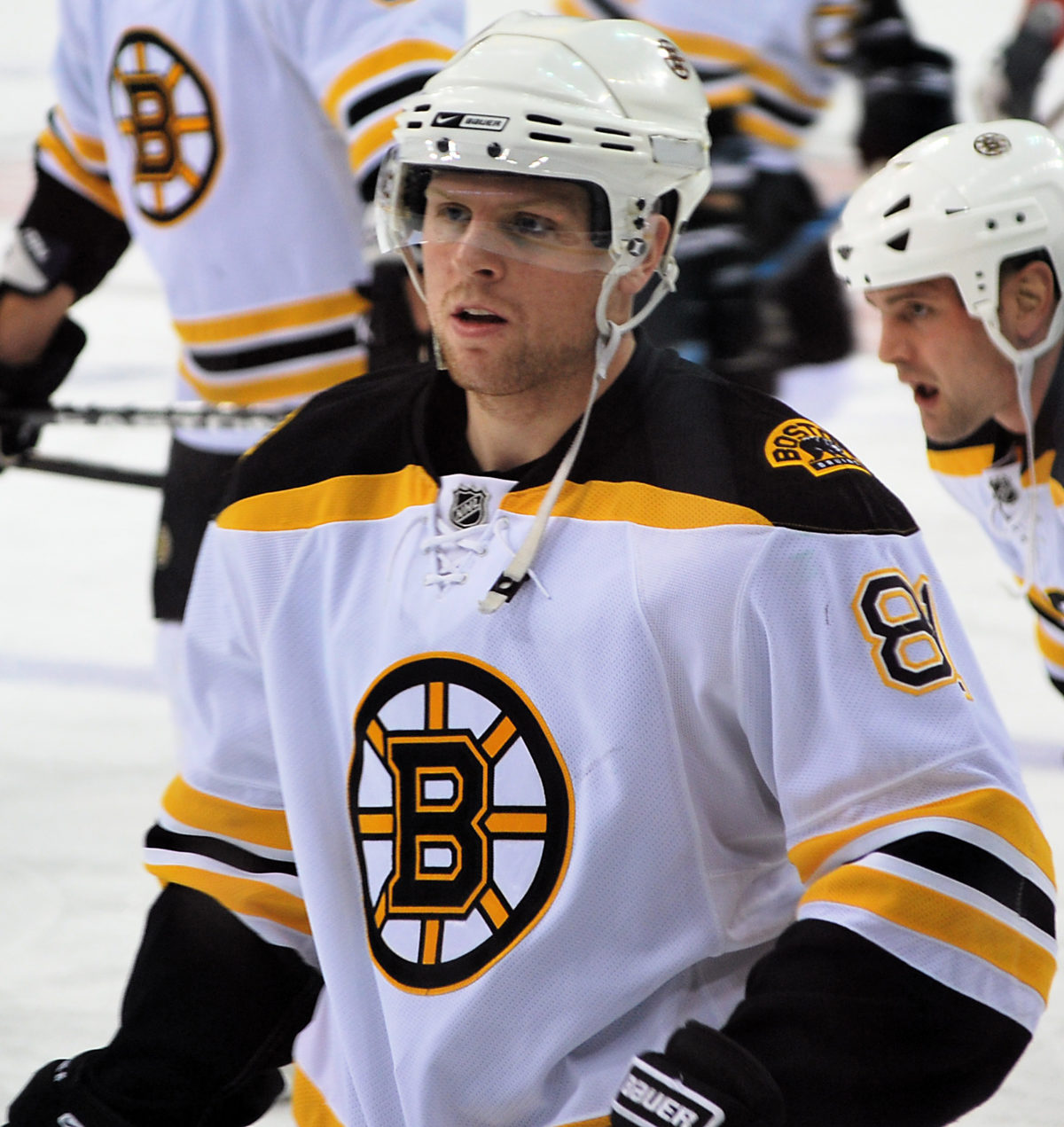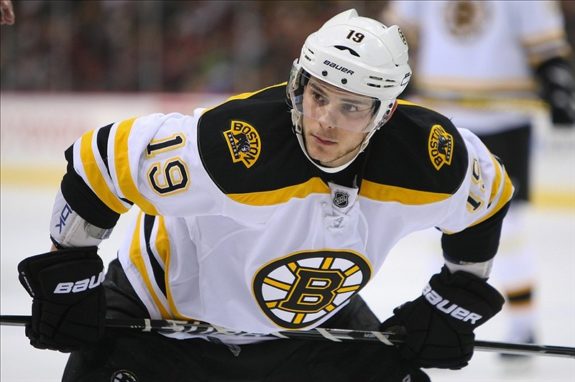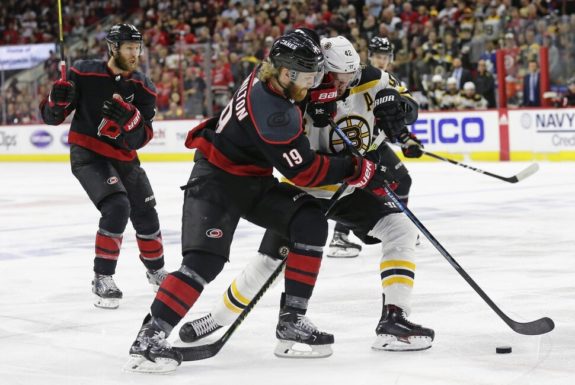Public opinion of the Phil Kessel trade has swung back and forth dramatically over the years. Dealing a 22-year-old potential superstar, fresh off of a 36-goal season, initially received a lukewarm reception. Faced with a trade request, and staring down a potential cap crunch, Boston Bruins’ general manager (GM) Peter Chiarelli made the controversial yet necessary decision to move Kessel to the Toronto Maple Leafs.
As details of the new contract were announced, the perception of the deal in Boston began to shift in a positive direction. Along with the cap savings was the tremendous return Chiarelli was able to squeeze from Toronto GM Brian Burke. This is where the saga known as the Phil Kessel trade tree began.
The Initial Deal

Upon hearing the news that Kessel had netted the Bruins two first-rounders with a second-round kicker, many fans had mixed feelings. These feelings would eventually turn to elation, as the Maple Leafs finished the 2009-10 season in 29th-place overall, delivering the Bruins the second-overall pick, and vaulting the club into the middle of the famed Taylor vs. Tyler debate.
Toronto would again struggle in 2010-11, allowing the Bruins the ninth-overall selection (Dougie Hamilton) in addition to Tyler Seguin (second overall) and Jared Knight (32nd overall) drafted the previous year.
Jared Knight
Despite his relatively high draft position, Knight ultimately had no impact for the Bruins at the NHL level. In parts of four seasons with the Providence Bruins in the AHL, he accumulated 27 points through 107 games, but was never able to catch on with the big club. Eventually, he was dealt to the Minnesota Wild for Zack Phillips, a former first-rounder who would also never play an NHL game. Phillips was eventually sent to the St. Louis Blues for future considerations in 2016, effectively cutting the shortest branch of the Kessel trade tree.
Tyler Seguin
The highest-profile piece of the Kessel trade was, and continues to be, Tyler Seguin. Over the course of his 203 game stint with the Bruins, he notched 56 goals, 121 points, and seemingly endless questions about his maturity. The Bruins allegedly grew tired of his off-ice behavior and chose to ship him out to the Dallas Stars along with Rich Peverly and Ryan Button in 2013.
Related: Phil Kessel – Biography
The trade caused a stir amongst fans, as he was just 21 years old and the return wasn’t exactly spectacular. The B’s acquired Loui Eriksson, Joe Morrow, Matt Fraser, and Reilly Smith in a deal that was rather underwhelming. Through 224 games, Eriksson (0.66 points/game) produced at a slightly higher rate than Seguin (0.60 points/game), but left as a free agent in 2016. Morrow also left as a free agent, and Fraser was claimed off of waivers by Edmonton in 2014.

In the end, the only player involved in the trade to net an actual asset was Smith. After 163 games as a Bruin, he was packaged with Marc Savard’s long-term injured reserve contract, and sent to the Florida Panthers in exchange for Jimmy Hayes. Hayes struggled in Boston, eventually being released by the club after putting up just 34 points in 133 games. His release effectively chopped the most complex branch of the Kessel tree.
Dougie Hamilton
The only unresolved branch of the tree, at least as far as the Bruins are concerned, is that of Dougie Hamilton. Despite having success early in his career and projecting as a future top-pairing blueliner, the Bruins were unable or unwilling to meet Hamilton’s contract demands in the summer of 2015.
Related: Remembering the Canadiens’ 2014 Playoff Run
After he turned down several extension offers, Bruins GM Don Sweeney was forced to deal the young restricted free agent to the Calgary Flames. In return, the Bruins acquired the 15th, 45th and 52nd overall selections in the 2015 NHL Draft. Sweeney used the picks to select Zachary Senyshyn, Jakob Forsbacka-Karlsson, and Jeremy Lauzon respectively.

Ultimately, fan perception of the Kessel deal may rest on the shoulders of the final three assets left in the organization. Although they have only played a combined 80 games in the NHL to date, at just 23 years of age the jury is still out on these three prospects.
With all three likely requiring at least one more year of seasoning in the AHL, one potential issue that may arise is the uncertainty that the league will even operate next season due to the COVID-19 pandemic. Should the AHL shut down operations for the 2020-21 season, Senyshyn and Lauzon may be forced to follow Forsbacka-Karlsson overseas in order to continue their development. In any case, fans will have to wait and see just how long the Hamilton branch of the Kessel tree grows.
By the Numbers
Over the last 10 years, the dramatic swings in public opinion surrounding the Kessel trade have ranged from discontent to borderline euphoria. However, as assets have either been mismanaged, underachieved, or moved on to other franchises, the return for Kessel has been quite difficult to judge.
You may also like:
- NHL Rumors: Ducks, Canucks, Bruins, Flames, Blues
- Bruins Offseason Relatively Quiet as They Wait on Bergeron & Krejci
- 3 Free Agents the Bruins Missed Out on Signing
- Bruins News & Rumors: Zacha, Pastrnak, Bergeron & More
- Boston Bruins: Predicting David Pastrnak’s Next Contract
Simply looking at the numbers, we see that the assets acquired have played 240 more games for the Bruins (1,084) than Kessel has in Toronto, Pittsburgh, and Arizona (844). Despite this, he has managed to score 104 more goals and 230 more points than the rest of his tree combined. While the full story has yet to be written, it is fair to say that few are likely to consider the Bruins the victors of this controversial deal once the final branch falls.
